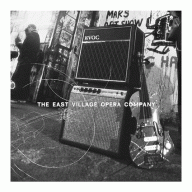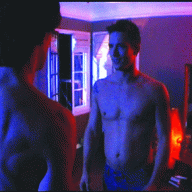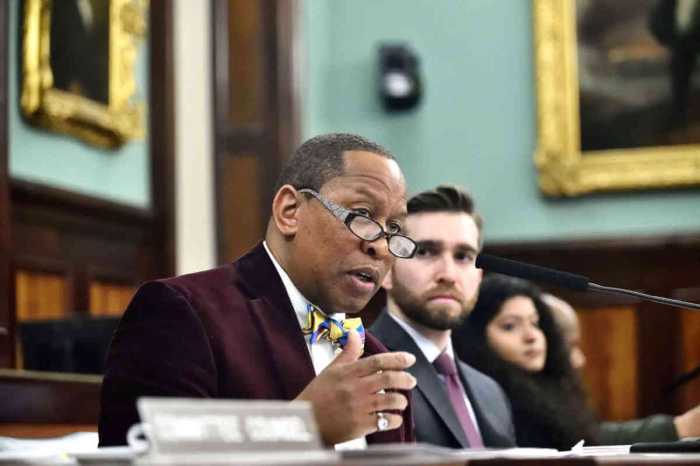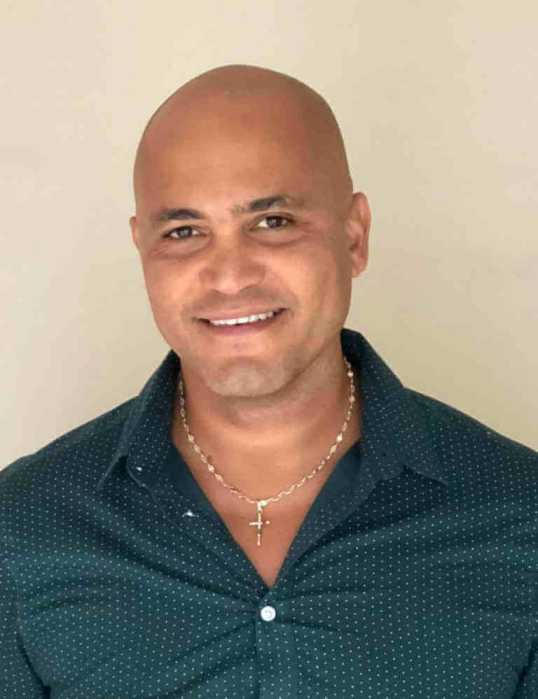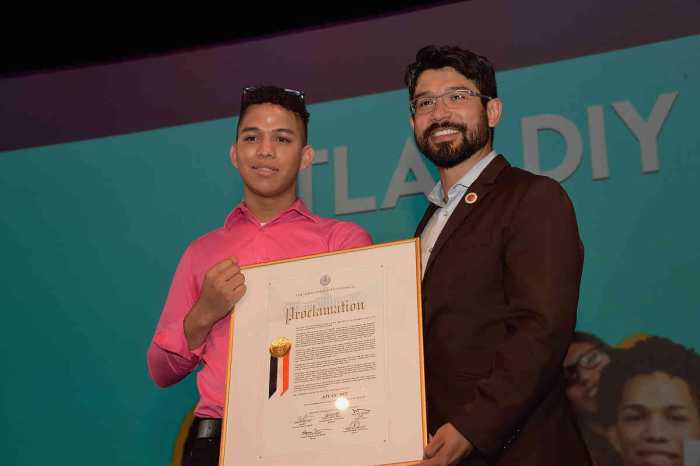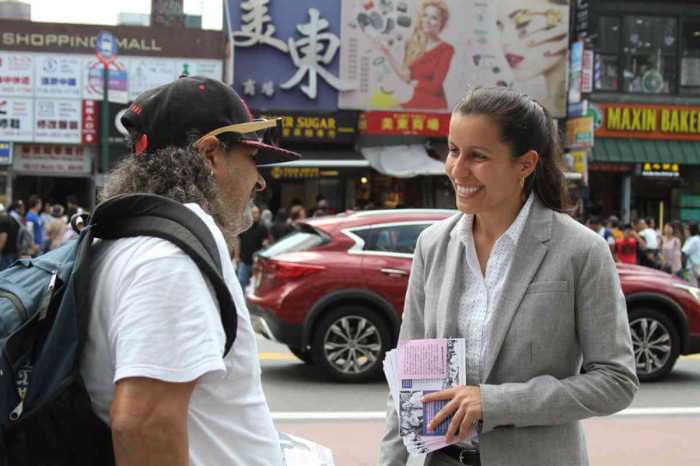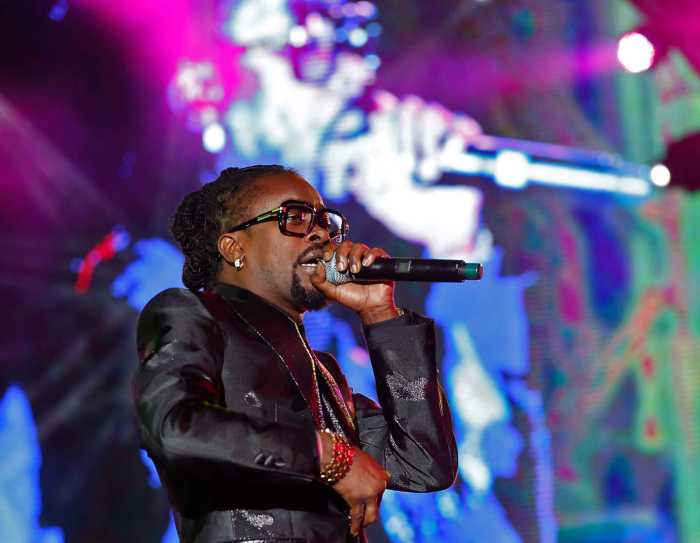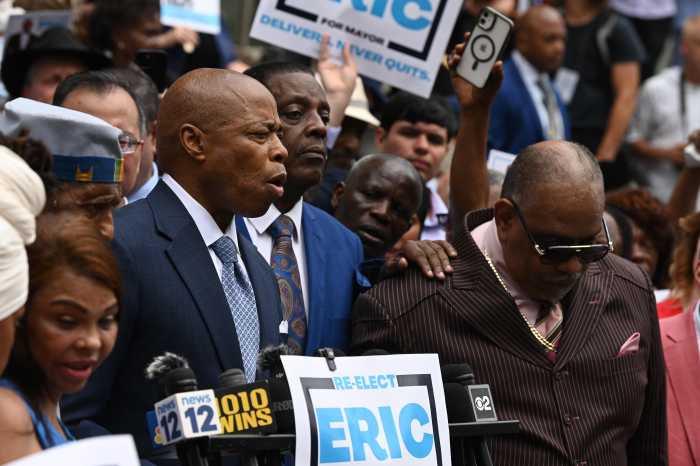First in a series of profiles of out LGBT City Council hopefuls –– see sidebar below. | ILLUSTRATION BY MICHAEL SHIREY
On Saturday, July 20, as most of New York crumpled under the seventh day of the worst heat wave in memory, Carlos Menchaca and Antonio Reynoso, first-time City Council candidates from different Brooklyn districts, pedaled 15 miles on bicycle from East Williamsburg to Sunset Park, greeting voters and drawing attention to where the city has and hasn’t made progress on creating safe bike lanes.
The outing certainly highlighted the two candidates’ youth and vigor — Menchaca is 32, Reynoso only 29. And it doesn’t hurt that bicycling is probably more on the minds of voters this year than it has been in any election in the post-Model T era.
But the symbolism runs deeper, going to the core of the appeal both men hope to convey as harbingers of a new politics in the city. Reynoso is running in the September 10 primary against Vito Lopez, the 72-year-old disgraced Albany fixture who resigned his Assembly seat in May amidst sexual harassment accusations from multiple women on his staff.
Menchaca is challenging Councilwoman Sara González, 64, who has represented District 38, which includes Sunset Park, Red Hook, and Windsor Terrace, since a special election in late 2002; under the city’s tortured term limit scheme, she is allowed four more years in office. Not only is Menchaca standing up to the Brooklyn political machine controlled until recently by Lopez, he is also aiming to become the city’s first Mexican-American elected official as well as the first out gay member of the Council from Brooklyn.
Carlos Menchaca campaigns before a festive crowd in Red Hook.
Not that he is unknown among the city’s political movers and shakers. For the past several years, Menchaca worked on Council Speaker Christine Quinn’s staff, doing community liaison work focused on the LGBT community and HIV/ AIDS issues. Before that he spent five years in Brooklyn Borough President Marty Markowitz’s office, with responsibility for capital budget and economic development issues.
His decision to make the race for the Council — and take on an 11-year incumbent in the process — he explained, only came in the wake of Superstorm Sandy, which hit Red Hook with devastating impact. Living in nearby Park Slope at the time, Menchaca recalled jumping on his bike after the storm cleared and heading over to the area, where blocks and blocks were submerged under water, homes and businesses were shuttered and evacuated, and large housing projects, where residents depend on elevators, were without power.
“Government was nowhere to be seen,” Menchaca recalled. Notably absent, he has since argued, was González, a point he said residents made over and over to him in the days he spent volunteering in the recovery effort. When, early this year, he decided to challenge her, the theme of a councilmember missing in action and the contrasting image of himself as “a candidate who is visible and active” became central to his campaign — so much so that press coverage has forced González and her representatives to repeatedly dispute that characterization.
In demonstrating that he is “active,” Menchaca does not shy away from the mantle of being an activist. “Government has to show up,” he told a group of interested voters at a house party early in the campaign.
The government showed up at critical points in his own early life. One of seven children raised by a single immigrant mother in an El Paso, Texas, public housing project, Menchaca’s family relied on food stamps, Medicaid, and Head Start. His good fortune was that those safety net supports were only part of the equation. At the house party, speaking of his mother, he said, “She made sure I went to school every day.” His promise recognized by others early, “mentors helped me go to college,” he said. He was the first in his family to earn a degree.
That college was the Jesuit University of San Francisco. A Catholic university could be a challenging place for a young LGBT student to seek an education, but Menchaca became the school’s first out gay student body president. Acknowledging the Catholic Church’s problematic posture toward gay people, he said he profited from his time there learning the values of discipline and social justice the Jesuit tradition instills.
When he finished college, Menchaca was chosen as one of that year’s 64 Coro Fellows in Public Affairs, who go through full-time, nine-month graduate level on-the-job leadership training. It was that program that brought him to New York.
As he launches his own political career after nearly a decade in city government, Menchaca seems determined to harness the discipline and commitment to social justice he valued in his education to a public style that is energetic, embraces new ideas, and looks to mobilize diverse communities to empower themselves.
The 15-mile ride he embarked on with Reynoso highlighted their endorsement by StreetsPAC, a group that works to improve the safety and calm of the city’s thoroughfares through improvements like slow zones, pedestrian plazas, and bike lanes. Since the start of his campaign, he has talked about participatory budgeting, an innovation introduced by Council newcomers from recent election cycles who invite constituents to help plan the allocation of member item dollars each district receives. When González recently began to talk up the idea herself, Menchaca said that evidenced her lack of innovation and community engagement absent his challenge.
Much like Barack Obama when he ran for his first term, Menchaca talks about the act of campaigning itself as a form of people mobilization.
“The community is refreshed to see this kind of campaign,” he said. “People are responding well to me knocking on their doors. I have the energy they want to see in government.”
His Mexican-American roots, he said, resonate well in a district the city estimates is roughly 44 percent Latino and 33 percent Asian. “My narrative as an immigrant is important here,” he said, noting that he recently received the endorsement of the Muslim Democrats of New York City, a group that represents a growing demographic in District 38.
Menchaca has also made important strides in attracting labor support to an insurgent candidacy. He has been endorsed by powerful unions, including SEIU 1199, which represents healthcare workers, 32BJ, representing building services employees, and the Hotel Trades Council, as well as the city’s Central Labor Council. He is also the only Council candidate challenging an incumbent to have the support of the Working Families Party this year.
González is not without her own loyal friends in labor, including the Transport Workers Union, the United Federation of Teachers, and the United Food and Commercial Workers, who offered her cover on her Red Hook record by lauding what she did to help speed the reopening of the Fairway Market there and get its 350 employees, sidelined for four months, back to work.
Asked if he was disappointed not to win those endorsements as well, Menchaca said, “The power of the incumbency is real. Whether she was a leader or not, expecting any of these labor unions to go my way was something I knew would be difficult. While I feel a little bit disappointed, what I think we are seeing in a larger narrative — and this is a beautiful thing for a challenger to be able to say — is that I am the labor candidate.”
Labor, he said, is looking back at 12 years in the wilderness under Mayor Michael Bloomberg and eager to embrace “candidates who are associated with the progressive mood in this election.”
If Menchaca has made impressive inroads into labor, his efforts with other elected officials have yielded considerably less. His campaign got an early boost from an endorsement by Congresswoman Nydia Velázquez, a leading Latina lawmaker whose district straddles Brooklyn, Queens, and Manhattan. While Lopez was still Brooklyn’s Democratic boss, González supported a challenger he put up against Velázquez in the 2012 primary. The congresswoman is now supporting González’s ouster.
Most everybody else is playing it more conventionally. The Daily News reported that more than 20 Council members, including Menchaca’s old boss Quinn, attended a recent González fundraiser, and half a dozen show up on her campaign finance filings as donors. Still, Menchaca questioned how deep their support for González is.
“What I will say is that a 10-year incumbent should be able to gather every Council member,” he said. “My relationships with people, particularly people who I’ve worked with on HIV/ AIDS and other progressive issues, are important to me. I am hoping to get some of them out on the campaign trail, even if at the very end. But I have been careful not to press them to go beyond their zone of comfort. Even a non-endorsement in this race is a telltale sign.”
Another telltale sign is a $100 contribution from the Lesbian and Gay Democratic Club of Queens, a group whose Council endorsements are otherwise limited to races in that borough. The club is the political home of out gay Councilman Daniel Dromm, a Jackson Heights freshman who has on more than one occasion demonstrated a willingness to be independent in a way many of his colleagues are not.
Menchaca also has the support of other key gay clubs, including Brooklyn’s Lambda Independent Democrats, the Stonewall Democrats, and the Jim Owles Liberal Democratic Club, as well as the Washington-based Victory Fund, which works to elect out LGBT candidates nationwide. (The Empire State Pride Agenda has not yet announced its primary endorsements.) Influential community leaders — including the Ali Forney Center’s Carl Siciliano, SAGE’s Michael Adams, Freedom to Marry’s Evan Wolfson, Detective Timothy Duffy, who runs the NYPD’s LGBT Liaison Unit, Stonewall’s Melissa Sklarz, and Carrie Davis, who heads the Community Services Department at the LGBT Community Center — have contributed to the campaign.
If there is a key vulnerability Menchaca has it could be his visibility in the district’s large Asian community — roughly a third of the population — concentrated in a Chinatown district in Sunset Park. While his campaign finance filing includes a scattering of Asian names, González’s list has numerous long runs of donors with the same Chinese surnames.
Asked if his campaign was doing enough to court Asian voters, Menchaca said he was “proud” to say he had just won the endorsement of the Lin Sing Association, a federation of Chinese-American groups that dates back more than a century and is headquartered in Manhattan’s Chinatown.
“They told me they see Sunset Park as an extension of their work,” he explained. “They said they need a connector in Sunset Park. I will be that connector.” Adding that his campaign has outreach staff fluent in a variety of Chinese dialects, he said, “We are not writing that vote off at all.”
OTHER VOICES ON THE HORIZON City Council elections this November could result in the largest contingent of LGBT-identified legislators — a total of eight. Though Speaker Christine Quinn is term-limited, and seeking election as mayor, incumbents Rosie Mendez of the Lower East Side, Daniel Dromm of Jackson Heights, and Jimmy Van Bramer of Sunnyside will each win another four-year term.
Quinn’s seat will also stay in LGBT hands, with a heated primary contest underway between attorney and activist Yetta Kurland, who won nearly a third of the vote in her challenge to the speaker in 2009, and Corey Johnson, who has served as chair of Community Board 4 in Chelsea and Hell’s Kitchen. In East Side District 5, Assemblyman Micah Kellner, who first ran for office as openly bisexual and has since married his longtime girlfriend, is contesting the Democratic primary for an open seat there being vacated by Jessica Lappin. Mel Wymore, formerly the chair of Upper West Side Community Board 7, is transgender and seeking the open seat in District 6, now held by Gale Brewer.
In the central Bronx, Ritchie Torres, who has headed up Councilman James Vacca’s initiatives on housing, is running in District 15.
In the next several issues, Gay City News will profile newcomers Kurland, Johnson, Wymore, and Torres.



